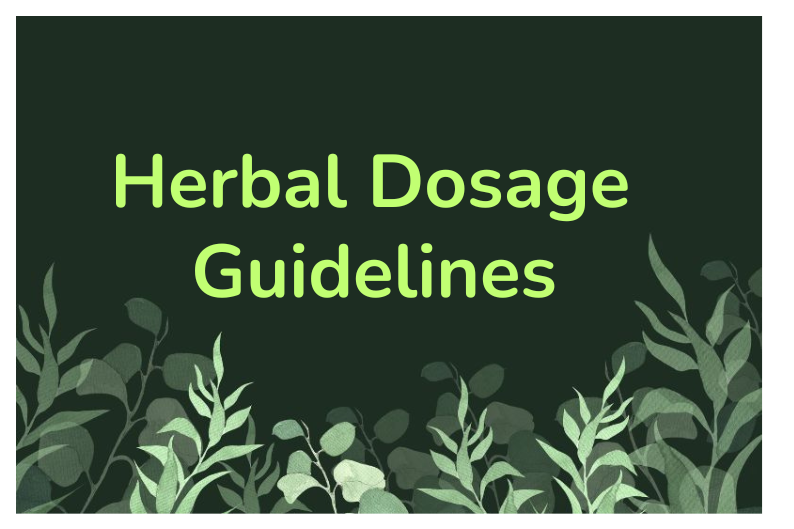
Key Guidelines for Safe Herbal Dosage and Effective Use
Herbal Dosage, Safe Use, Strength of Herbs: Key Guidelines for Effective Results
Herbs have been used for hundreds of years to support health, but the right dosage and safe use can be confusing. Finding the correct herbal dosage is important because herbs are powerful and must be respected to get real, reliable results. Experts like Gary Brecka and Barbara O’Neil stress that being careful with herbs—knowing both their strengths and limits—helps people enjoy the benefits without trouble.
MC Herbs believes that safe, natural wellness starts with clear information and honest supplements. Each plant can help support the body, but the effects depend on the strength of the herb and using it safely. With the right choices, herbal remedies offer gentle options for everyday health.
Key Takeaways
- The right herbal dose is key to safety and success
- Herbs are powerful and should be used with respect
- MC Herbs offers clear guidance for safe herbal use
Understanding Herbal Dosage and Strength
Herbal dosing needs careful consideration. Each plant offers unique strength, and a safe amount depends on several factors. Knowing how to measure and adjust doses helps people use herbal preparations wisely for best results.
Factors Influencing Herbal Dosage
The right dosage of herbs depends on the person's age, body weight, overall health, and sensitivity. The part of the plant used and its preparation method also affect the ideal amount. For example, root extracts can be stronger than leaf teas.
Herbalists like Gary Brecka and Barbara O’Neil highlight that climate, soil, and harvest timing all play roles in an herb's potency. Freshly prepared herbal extracts might be stronger than dried ones.
Using MC Herbs supplements is one way to ensure a steady quality and strength. Herbal dosing also takes into account why someone is taking the herb, such as for daily support or a short-term boost.
Methods for Calculating Safe Doses
Safe herbal dosing involves understanding both traditional uses and modern guidelines. A common approach is to use body weight or age to set the starting dose. For example, adults often start with 1 to 6 grams of dried herb daily, while children use less.
Doses are adjusted as needed by monitoring how the body responds. Adjustments can be made in small steps. It is common to begin with the lowest effective dose, increasing only if needed and if the body handles it well. For more specifics, a typical herbal powder might be taken in amounts from 0.5 to 3 grams for gentle daily support, or more for targeted needs, as shown by herbal dosing guidelines.
Tables and charts found on MC Herbs labels offer simple guidance on starting amounts. These can help avoid using too much or too little of any supplement.
Herb Strength and Potency Explained
Herb strength means how concentrated and effective a preparation is. Processing methods, such as making tinctures versus powders, influence potency. Fresh, wild-harvested plants can be much stronger than dried or store-bought versions.
The strength also relates to the part of the plant used. For instance, seeds and roots usually hold more powerful compounds than leaves or flowers. Potency is shown on the label, sometimes as a ratio (like 1:5, which means 1 part herb to 5 parts solvent).
MC Herbs takes care in making herbal blends to keep strength and dosage clear. This helps users select the right preparation and amount for their individual needs. Knowing the potency can help each person fine-tune their herbal experience safely and effectively.
Safe Use of Herbal Remedies
Understanding how to use herbal remedies safely means looking at how preparation methods, health conditions, and age groups affect the body. The right dose is not the same for everyone and depends on the type of herb, the intended effect, and the way it is taken.
Adjusting Dosage by Preparation Type
Herbal remedies come in many forms, like herbal tea and tinctures. The strength of the herb changes based on how it is prepared. For example, herbal teas are usually weaker because they use water to pull out gentle compounds. On the other hand, tinctures contain herbs soaked in alcohol or glycerin, which extracts stronger plant properties.
To use herbs safely, people should only use the dose recommended for each type. MC Herbs provides clear guidelines on proper dosages for teas, tinctures, and capsules. For instance, a cup of herbal tea may need only 1–2 teaspoons of dried herbs, while tinctures might require as little as a few drops per use. Adjusting the amount based on preparation avoids unwanted side effects and gets the best results from each herbal remedy.
Paying close attention to the concentration helps people benefit from natural remedies, without risking overdose or underuse. This approach follows the advice of natural health advocates like Gary Brecka and Barbara O’Neil, who support mindful dosing for herbal safety.
Dosing for Acute and Chronic Conditions
Herbal dosing should match whether a person faces an acute condition or a chronic condition. For acute issues, like a mild headache or seasonal cold, a short-term, slightly higher dose may be needed for a few days. Chronic conditions, such as long-term stress or digestive problems, usually require a lower, steady dose used over weeks or months.
MC Herbs encourages adjusting herbal remedy strength to fit the health concern. A table makes it clear:
| Condition Type | Example | Herbal Dosage Pattern |
|---|---|---|
| Acute | Cold, Headache | Take higher dose briefly (1–5 days) |
| Chronic | Stress, Digestion | Take lower dose long-term |
Listening to the body’s response is important. Too much over time can build up and lead to side effects. Balanced dosing for each type of condition helps herbal tinctures and teas work safely and effectively.
Herbal Safety Guidelines for Different Age Groups
People of different ages need different dosing guidelines for herbal remedies. Children, the elderly, and adults process herbs differently. For children, start with small amounts—often ¼ or ½ of an adult dose—since their bodies are more sensitive. The elderly may need lower doses as well, especially if they have slower metabolisms.
MC Herbs recommends using only trusted, pure products for all age groups. Basic safety tips include:
- Use age-appropriate forms, like milder herbal teas for kids
- Avoid alcohol-based tinctures for young children
- Keep a close watch for reactions with any new herbal remedy
Careful dosing by age group makes herbal remedies safer and provides the benefits of natural healing without extra risks. Families following these herbal safety guidelines—supported by experts such as Barbara O’Neil—can confidently use MC Herbs supplements and other quality products.
For more, read detailed tips on safe herbal use and dosage.
Frequently Asked Questions
Choosing the right herbal dosage requires attention to the herb’s strength, form, and the needs of the person using it. Understanding risks, safety steps, and scientific methods helps people get the most from herbal support.
How can one accurately calculate the correct dosage for herbal medicines?
Dosage depends on a person’s body weight, age, and the specific herb being used. Experts often use adult dosage standards based on a 150-pound person, adjusting amounts for children and those with less body mass. Tinctures, teas, and capsules each have different strengths, so exact measurements are important for safe and effective use. More information can be found by following these safe herbal dosage guidelines.
What are the guidelines for determining the strength of various herbs?
Herbs are generally grouped as mild, moderate, or strong. Factors like the plant part used, preparation method, and concentration all impact strength. MC Herbs suggests starting with lower doses, especially for stronger herbs, and gradually adjusting to the individual’s response. Always verify a herb’s strength and effects before adding to a wellness routine. Read more in the herbal dosing guide.
What are the known risks associated with the use of herbal medicines?
Some herbs can cause unwanted effects, especially when taken in large amounts or combined with other supplements. Risks include digestive upset, allergic reactions, or overstimulation. Not all herbs are safe for children or those who are pregnant. Being aware of each herb’s safety profile and using only quality products from companies like MC Herbs is important for risk prevention, as explained in guidelines for safe and responsible herbal use.
Is there a standardization process for the dosages of herbal remedies?
Most herbal dosages are not set by strict global standards, but reference texts and experienced herbalists, like Gary Brecka promotes, recommend starting with traditional dosage ranges and adjusting as needed. MC Herbs uses carefully developed serving sizes based on both tradition and updated natural health knowledge to ensure consistency and safety.
What safety precautions should be taken when using herbal medicines?
It is best to introduce one herb at a time and watch closely for reactions. Store all herbal supplements out of children’s reach and use accurate measurements for each dose. Detailed instructions and ingredient lists, like those given by MC Herbs, help build trust and safety with every purchase. Take time to study quality control standards and seek out expert tips for safe herbal use.
How can the effectiveness of herbal medicines be scientifically evaluated?
The most reliable ways to check effectiveness are through observation of changes over time, keeping detailed notes of results, and comparing these with traditional experiences. Some people also use simple before-and-after tests for sleep, energy, or digestion. Well-formulated MC Herbs products are based on both scientific and traditional findings so people can track and measure real results.
